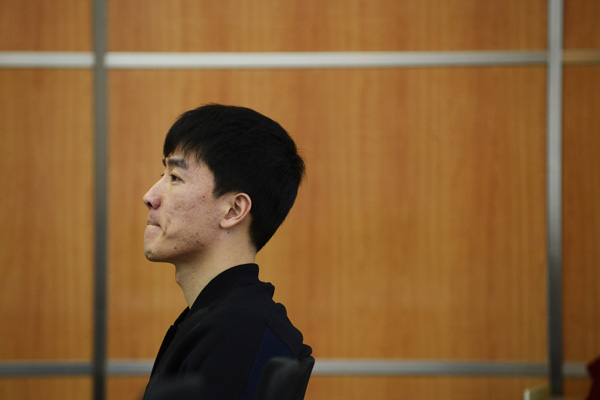 |
After a long absence from competition, Olympic champion hurdler Liu Xiang has found himself back in the headlines in more ways than one.
Messages and pictures of the star athlete have circulated on major Internet portals and social networking platforms. Only this time, the media hype appears more related to money than sporting success.
Soon after Liu announced his retirement on Tuesday through his micro blog, international and domestic companies rushed to launch marketing campaigns featuring him, in the hope of maximizing their commercial interests.
Nike, the United States-based multinational, which has invested heavily in Liu through sponsorship, released a series of advertisements featuring his pictures alongside the slogan "The ordinary can also fly".
Companies that do not have contracts with Liu, including a drinks producer, fast-food restaurant chain, smartphone maker and even a condom manufacturer, have also joined the marketing frenzy, in the hope of using Liu's celebrity status to attract greater publicity.
Some observers view this as business paying tribute to a national hero, while others see it as exploiting the last of Liu's commercial value as a former athlete.
Unlike many sports stars who bowed out at their peak, Liu's retirement was a long-delayed decision.
Many believe he was forced to remain an athlete because of uncompleted contracts with sponsors and potential fines for violating the contracts.
Liu's commercial value was at its peak after he won the gold medal in the 110 meter hurdles at the 2004 Athens Olympics. This brought him instant fame at home, with his youthful and energetic appearance and witty personality attracting sponsors such as Nike and Coca-Cola.
At the peak of his career, Liu had 17 sponsors' contracts worth about 1 billion yuan ($162 million). From 2003 to last year, he earned 535 million yuan, according to Forbes magazine.
In 2007, the magazine ranked Liu as the second-richest celebrity in China after basketball star Yao Ming.
But his commercial value began to decline after his abrupt withdrawal from the Beijing Olympics in 2008 and his disappointing failure at the London Games in 2012.
In 2013, Liu dropped off Forbes' list of top-paid Chinese celebrities, and some major brands canceled sponsorship contracts with him.
But commercial interests have remained a significant factor in Liu's career, even though he has been absent from competition for the past three years due to foot injuries.
Tan Jianxiang, a sports sociology professor at South China Normal University, said, "Even if an athlete is trained by the state sports system, he will still have problems with commercial interests."
Zhang Qing, a sports marketing expert and founder of the Key-Sports consulting agency, said, "The main goal for athletes like Liu is to win honor for their country. Commercial interests only come second."
Contact the writer at [email protected]